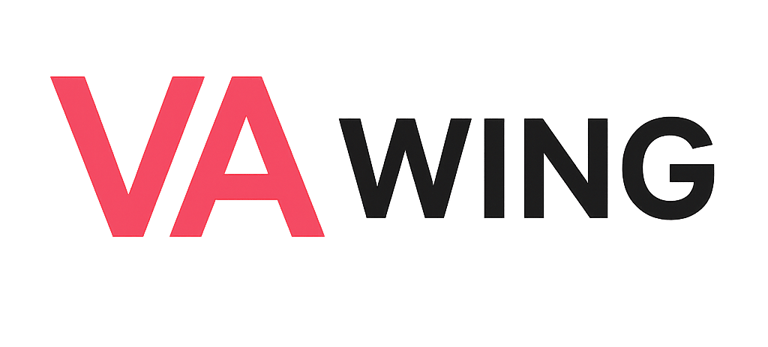Turning Virtual Assistant Challenges into Opportunities | Data Security, Talent Quality & Retention
Explore how businesses can overcome the biggest virtual assistant challenges from data security and skill gaps to retention. Learn how transparent hiring, continuous training, and compliance workflows help agencies deliver consistent quality.
Sam Smith
10/14/20253 min read


Turning Virtual Assistant Challenges into Opportunities: Data Security, Talent Quality & Retention
Intro
At VA Wing, we believe virtual assistant services aren’t just about outsourcing — they’re about building long-term partnerships that drive growth, efficiency, and trust.
Yet, as the demand for virtual assistants skyrockets in 2025, businesses are facing three key challenges: data security, talent quality, and retention.
Each of these can make or break the success of your remote operations.
Here’s how forward-thinking businesses — and agencies like VA Wing — are turning these challenges into real competitive advantages.
1. Data Security: The Foundation of Trust
When businesses outsource tasks to remote assistants, data privacy becomes the number one concern. From client databases to financial details, sensitive information flows across borders and devices daily.
The challenge:
Inconsistent data protection standards across countries.
Limited control over third-party access and storage.
Rising cases of phishing, leaks, and compliance violations.
The impact:
One small oversight in data handling can lead to serious financial loss or brand damage.
VA Wing Insight:
We treat data protection as a partnership responsibility, not just a checklist. Every VA on our team works within secure digital environments, protected by:
Encrypted communication tools and VPN access.
Multi-layer authentication systems.
Regular cybersecurity audits and compliance reviews.
Pro Tip:
Always verify your virtual assistant provider’s compliance certifications (like GDPR or ISO standards). A secure workflow builds lasting client confidence.
2. Talent Quality: From Skill Gaps to Skill Growth
The second challenge most businesses face is inconsistent talent quality. Many virtual assistants enter the industry with limited professional training, leading to performance gaps and communication breakdowns.
The challenge:
Uneven skill levels in core areas like communication, analytics, or platform management.
Lack of exposure to brand standards or digital tools.
Overpromising by providers without structured vetting.
VA Wing Insight:
We believe great VAs aren’t found — they’re developed.
Our recruitment model prioritizes transparent hiring and continuous upskilling, ensuring every assistant evolves with industry trends.
What works best:
Skill-based onboarding tests to assess real competency.
Regular performance reviews with personalized development plans.
Upskilling programs focused on social media, automation tools, and AI workflows.
Pro Tip:
Don’t just hire for tasks — hire for potential. A VA who learns and grows with your business delivers 10x more long-term value.
3. Retention: The Real ROI Challenge
High churn rates are a silent killer in the virtual assistant industry. Losing a trained VA means restarting recruitment, onboarding, and productivity from scratch.
The challenge:
Remote fatigue and lack of motivation.
Limited career growth or recognition.
Misaligned communication between clients and assistants.
VA Wing Insight:
Retention is about relationship, not just payroll.
We invest in our assistants’ success by creating a balanced, rewarding work culture that values transparency and career progression.
Our approach includes:
Structured onboarding for clarity and confidence.
Regular check-ins to ensure job satisfaction.
Performance-based growth incentives.
Pro Tip:
Build connection beyond contracts. Simple acts like feedback calls, appreciation notes, and transparent communication can reduce turnover dramatically.
4. Building a Compliance-First Culture
Behind every secure and sustainable VA partnership lies compliance discipline. Businesses must ensure that every virtual assistant understands and follows legal, ethical, and operational standards.
Common compliance pitfalls:
Using unlicensed software or unsecured devices.
Inadequate documentation for client data handling.
Overlooking non-disclosure or confidentiality clauses.
VA Wing Insight:
We’ve built a compliance-first culture — blending automation with accountability.
Our VAs receive ongoing compliance training to stay aligned with international standards like GDPR, DPDP, and HIPAA (where applicable).
Pro Tip:
Add a compliance clause in every VA agreement. Clear expectations protect both your business and your client relationships.
5. The VA Wing Approach: Turning Challenges into Strengths
At VA Wing, we see every challenge as a stepping stone to improvement.
By combining transparent hiring, structured onboarding, regular upskilling, and rigorous data protection, we help businesses transform virtual assistant outsourcing into a scalable, secure, and reliable growth system.
Our formula for success:
People + Process + Protection = Long-Term Partnership.
People – Skilled, motivated, and continuously trained assistants.
Process – Clear workflows with measurable KPIs.
Protection – Compliance-backed systems that safeguard every operation.
Conclusion: From Outsourcing to Empowering
The future of virtual assistance isn’t about outsourcing tasks — it’s about building empowered ecosystems where businesses and assistants grow together.
By addressing data security, skill development, and retention head-on, brands can transform outsourcing risks into growth opportunities.
At VA Wing, we don’t just provide virtual assistants — we provide trust, transparency, and transformation.
Because in the digital age, the strongest partnerships are built on more than efficiency — they’re built on confidence and care.
Contact
Get in touch with us
info@vawing.com
+1-800-555-0199
© 2025. All rights reserved.
Important Links
Terms & Conditions
